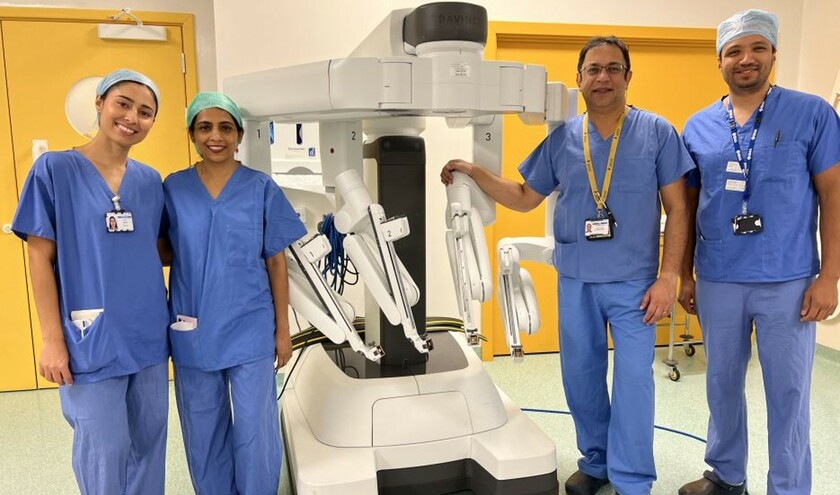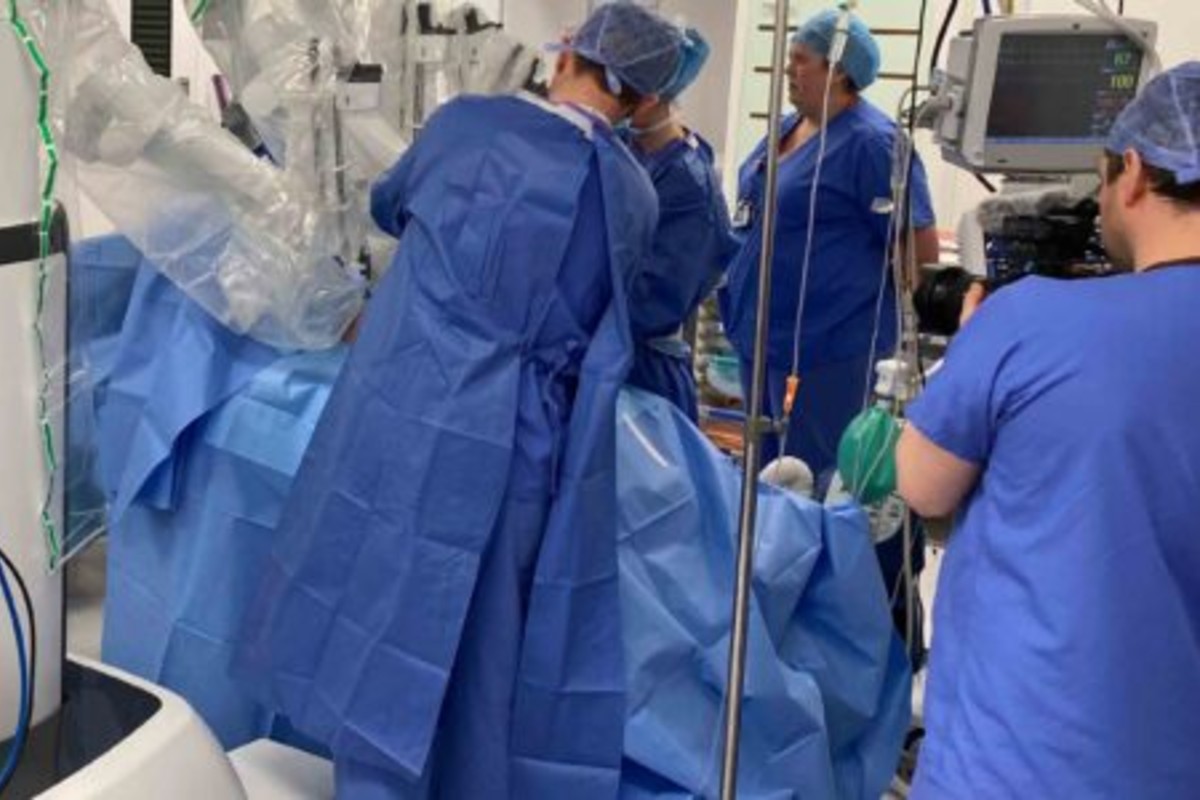Gynaecological surgeons at the Royal Stoke University Hospital are robotically implanting a synthetic vaginal mesh to support the prolapse.
The robotic procedure, known as a sacrocolpopexy, has several benefits for patients including a shorter hospital stay, less postoperative pain, fewer visible scars, and a faster recovery time.
Ms Manjula Annappa, consultant urogynaecologist at UHNM, said: ‘Previous pelvic organ prolapse procedures involved laparoscopic or even open surgery which is more painful for the patient and involves a longer period of hospital stay and recovery for the patient. It's also more challenging for the surgeon to operate this way in the pelvic region.
‘But by using the Intuitive Da Vinci Xi robotic system, we are able to perform this procedure in just over an hour with greater precision leading to less blood-loss, less post-operative pain, a quicker recovery time and a shorter stay in hospital, helping to reduce waiting lists for surgery.'



